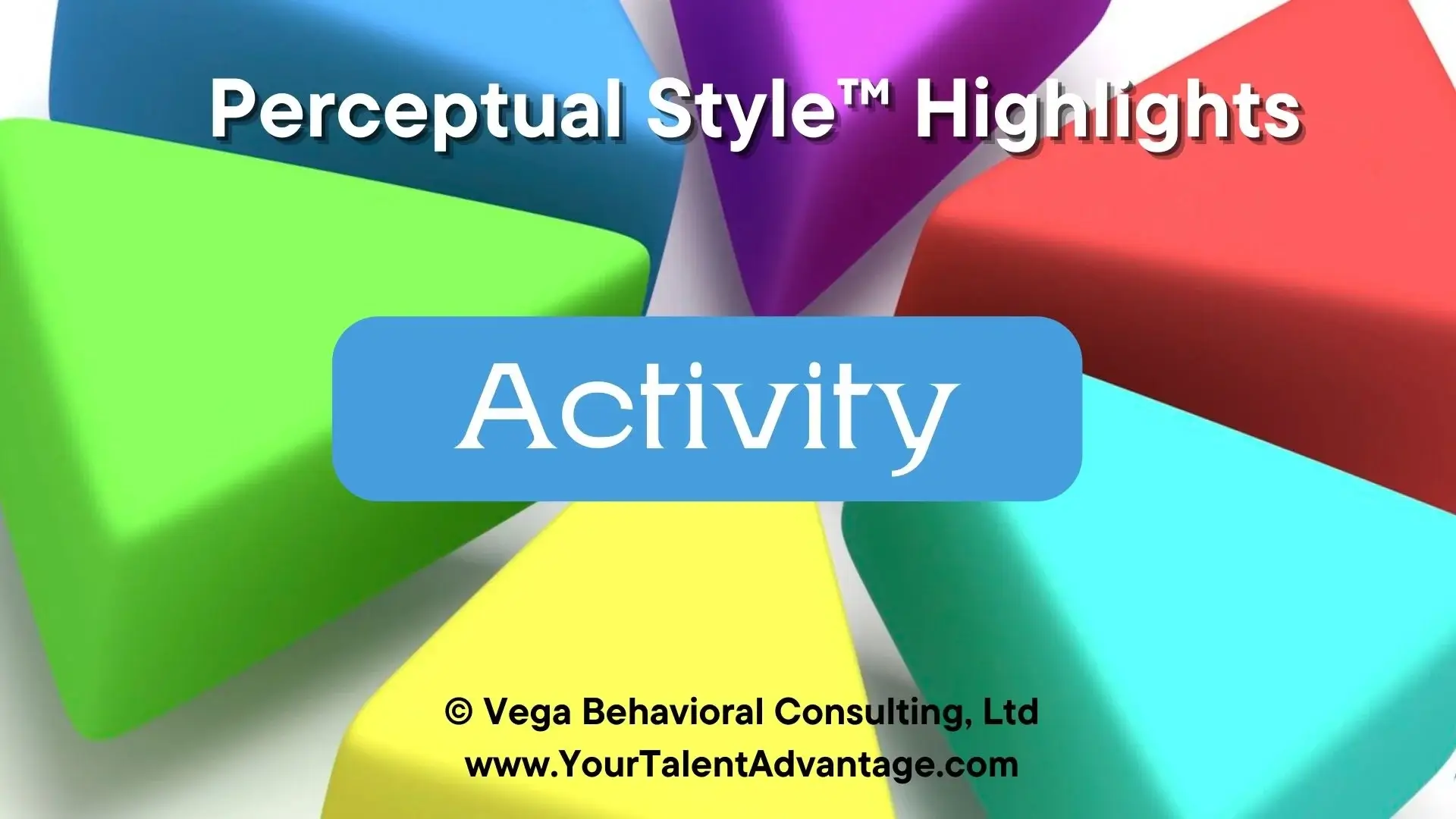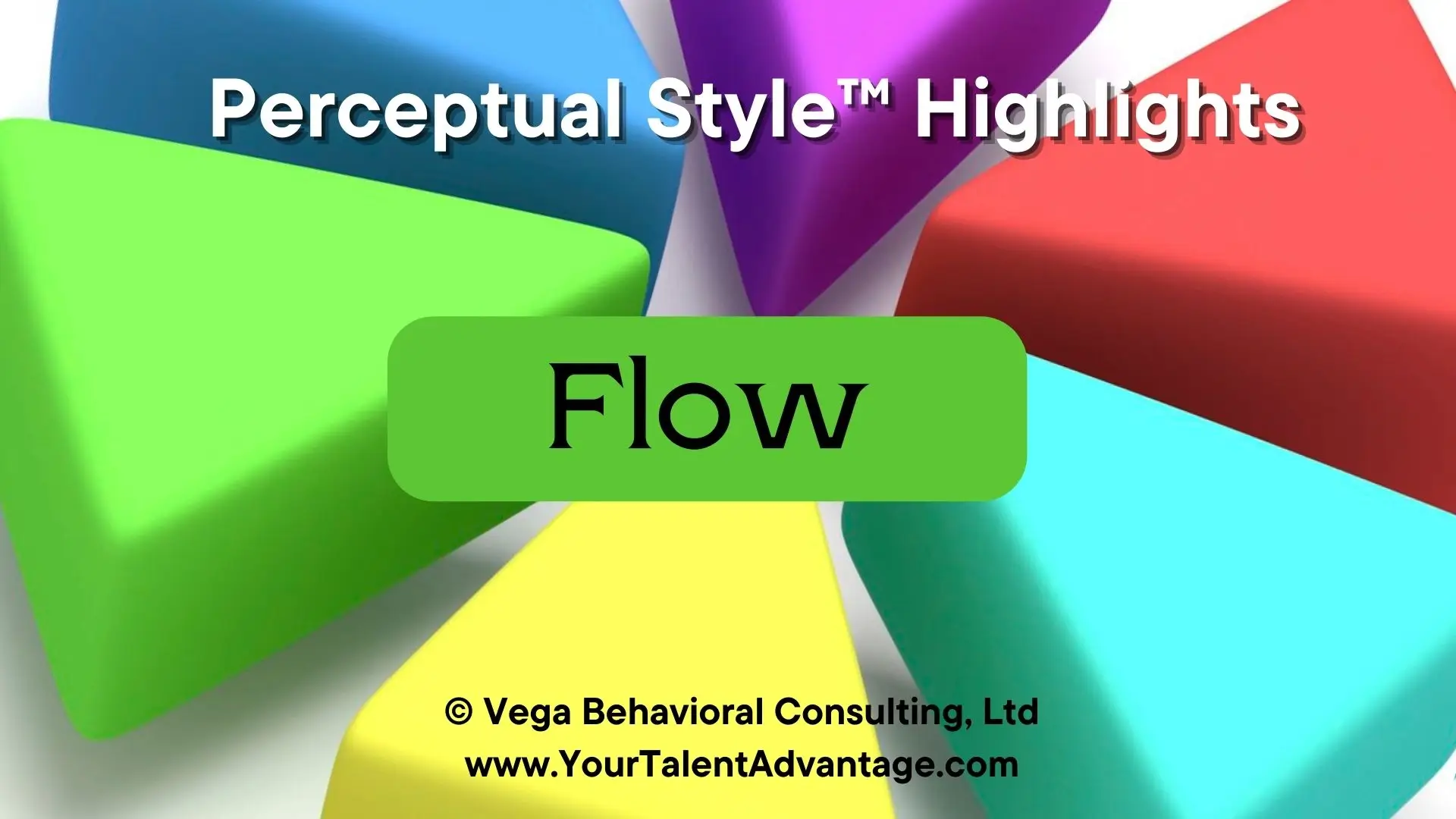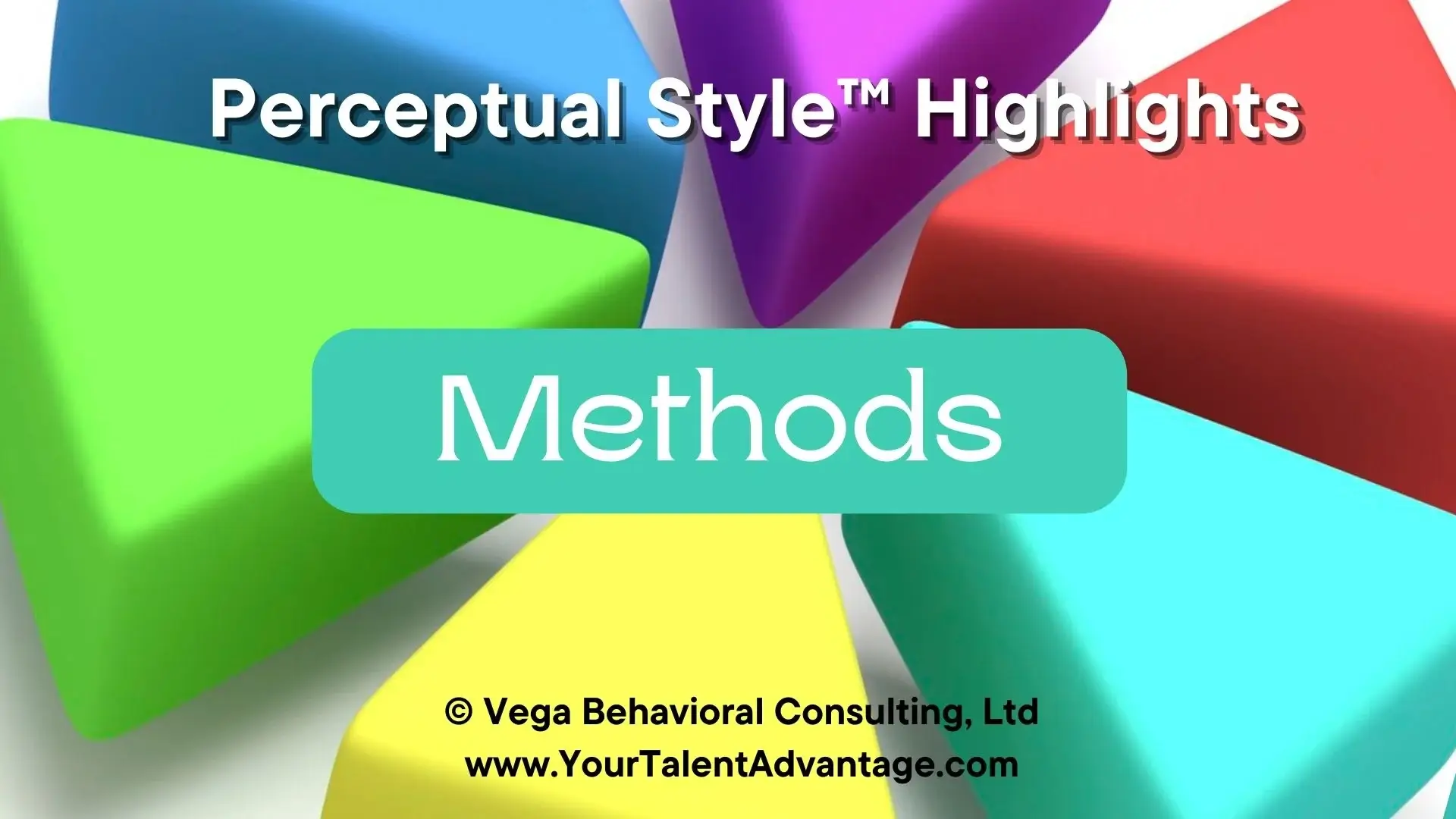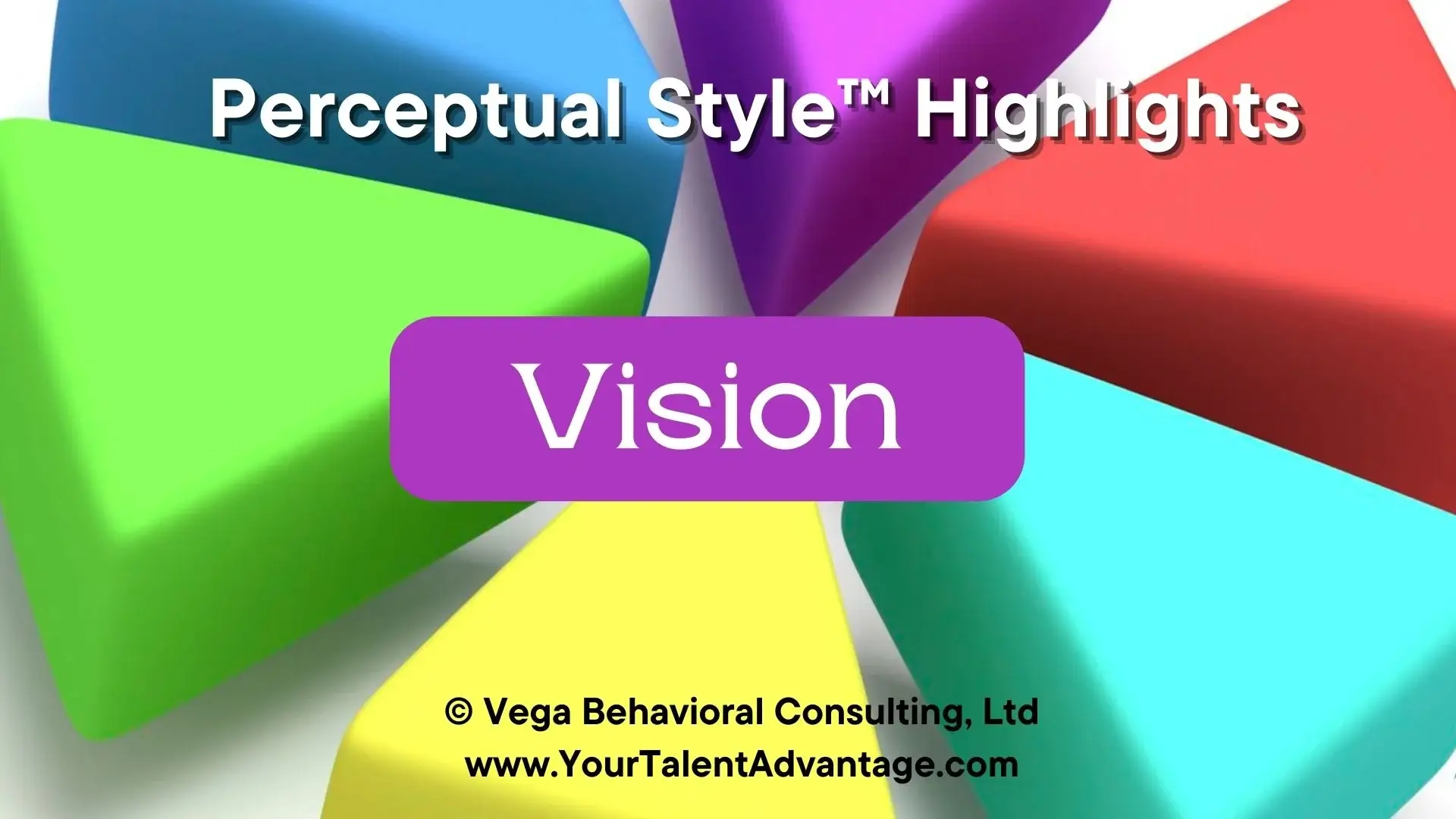
Vision Perceptual Style™ and Conflict
Navigating Conflict with Purpose and Possibility
Conflict shows up in every corner of life — in conversations that go sideways, in teams that lose momentum, and in relationships that suddenly feel out of sync. Most people try to avoid it, minimize it, or push through it as quickly as possible. But for people with the Vision Perceptual Style,conflict isn’t just a disruption. It’s a signal. A clue. A moment that reveals misalignment and invites forward movement.
Vision -oriented individuals instinctively look past the tension and toward what the situation could become. They see possibility where others see friction, and they naturally gravitate toward solutions that create clarity, direction, and renewed momentum. Understanding how Vision people experience conflict — and how they lead others through it — is the key to transforming disagreements into meaningful progress.

Why Understanding Conflict Matters
Conflict isn’t just about opposition — it’s about how we navigate differences to build stronger connections and create lasting solutions. How you handle conflict can:
-
Spark innovation by revealing new possibilities and perspectives.
-
Strengthen trust through thoughtful, values-based conversations.
-
Align efforts by turning disagreement into shared direction.
-
Deepen insight through honest reflection and resolution.
When conflict is misunderstood or mishandled, it can erode trust and stall progress. But when you understand your Vision Perceptual Style,you can channel your natural strengths to create clarity, inspire collaboration, and resolve tension in ways that move people — and ideas — forward.
How Vision People Experience Conflict
With the Vision Perceptual Style,you don’t shy away from conflict — you see it as a necessary step toward meaningful alignment. For you, tension isn’t just a disruption to smooth over — it’s a signal that something deeper needs to be addressed and clarified.
You thrive when you can:
-
Rely on your intuition to spot underlying dynamics and unspoken tensions in the moment.
-
Keep conversations focused on impact and shared purpose.
-
Reframe conflict as a chance to clarify direction and inspire constructive change.
-
Encourage transparency and challenge assumptions that may be holding people back.
But here’s the thing: surface-level solutions or avoidance don’t sit well with you. You want clarity, alignment, and progress that lasts — not quick fixes that miss the point.


Why Understanding Your Perceptual Style Matters
Your approach to conflict is a strength — intuitive, future-focused, and inspiring. But without awareness of how your style plays out under pressure, you may push too hard for alignment, overlook emotional cues, or leave others feeling steamrolled by your intensity.
When you understand your Vision Perceptual Style,you can:
-
Channel your insight and big-picture thinking into constructive, lasting resolution.
-
Bridge differences by spotlighting common ground and championing creative solutions.
-
Guide others through tense moments with presence, perspective, and conviction.
Awareness gives you the power to use conflict as a catalyst — not just for resolution, but for transformation that aligns people and purpose.
Take Action: Discover Your Perceptual Style
Stop seeing conflict as a roadblock — and start using it as a launchpad for progress and connection. The Perceptual Style Assessment™reveals how you naturally respond in moments of disagreement — and gives you practical strategies to resolve conflict with creativity, confidence, and purpose.
When you complete the assessment, you’ll receive:
-
A 45-page Celebrate You! action guide tailored to your Vision Perceptual Style.
-
Insights into your conflict-resolution strengths and how to apply them effectively.
-
Tools to guide tough conversations toward shared understanding and meaningful solutions.
Don’t wait — unlock your power to transform conflict into clarity, collaboration, and lasting alignment!

Explore the Six Perceptual Styles and Conflict
Curious about how different Perceptual Stylesapproach conflict? Explore below for insights into each unique style:
Understanding how your Perceptual Style shapes your response to conflict is one of the most powerful tools you can bring into your personal and professional life. When you know your natural strengths — and the blind spots that come with them — you can navigate tension with more confidence, clarity, and compassion. Vision‑style individuals have a remarkable ability to turn conflict into momentum. When used intentionally, that ability becomes a catalyst for meaningful, lasting resolution.
Frequently Asked Questions about the Vision Perceptual Style and Conflict
What does it mean to have the Vision Perceptual Style™?
You live in possibility. You spot openings, connect dots others don’t see yet, and move fast toward what could be. When an idea sparks, you share the picture, invite people in, and start exploring options in real time—learn, adjust, keep going.
What are some of the natural strengths of Vision?
You inspire action. You paint a clear, exciting picture of what could be and help others see themselves in it. You simplify complexity, spot opportunities others miss, and stay open to new directions. You’re the one who says, “What if we tried this?”—inviting people to imagine, explore, and move forward with you.
How does the Vision style show up in Conflict?
You’d rather prevent conflict than engage in it. You often head it off by spotting issues early, reframing problems, or persuading others to see things your way. But when disagreement can’t be avoided, you meet it directly—surfacing issues openly, finding common ground, and using your persuasion to help everyone refocus on shared goals.
What are a few common blind spots—and how can I manage them?
Your speed and certainty can steamroll folks who need time, details, or reassurance. When you sense resistance, try a quick sequence: pause, name what they value (“I get that you feel strongly about this—and I respect that”), then offer two options that preserve movement. Add one anchor—“What’s the next right step for now?”—so your pace doesn’t outrun people’s capacity. And when boredom tempts you to declare something “done,” ask, “What outcome did we actually get?” That keeps results honest.
How can understanding my Vision strengths help me thrive?
Knowing your Perceptual Style helps you channel your creativity and intuition intentionally. You can focus on opportunities that align with your values, inspire others to believe in what’s possible and help bring it to life, and stay grounded through feedback and follow-through. Awareness turns your natural foresight into meaningful impact—helping you not just imagine the future, but shape it.
Can my Perceptual Style change over time?
No—your Perceptual Style is innate. What does evolve is how you apply it. As you grow in awareness and intention, you’ll expand how—and where—you use your natural strengths.





